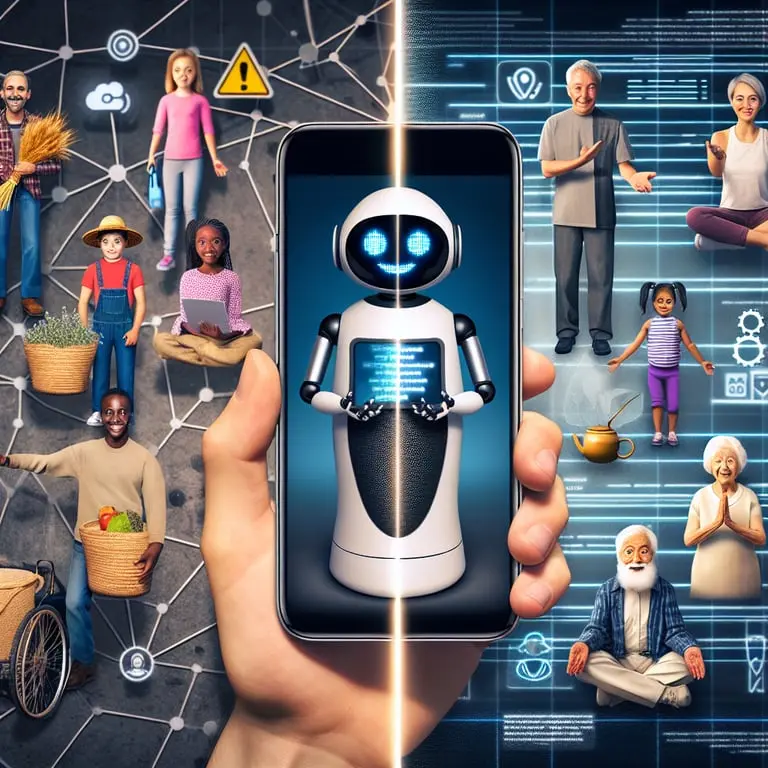Introduction
Artificial intelligence (AI) has rapidly evolved beyond simple automation, emerging as a sophisticated tool for human-like interaction. Today, AI companions are redefining how people engage with technology—not merely as robotic assistants but as intuitive, responsive entities capable of collaboration, creativity, and emotional intelligence.
But what sets AI companions apart from traditional chatbots? Why are they becoming an integral part of businesses, personal workflows, and even social interactions? Let’s delve into the evolution, applications, and ethical considerations surrounding this fascinating advancement in technology.
The Evolution of AI Companions
Early chatbots primarily functioned as scripted responders, capable of answering frequently asked questions based on predefined inputs. However, AI companions have far surpassed these limitations by leveraging machine learning, natural language processing, and generative AI models to create meaningful exchanges.
What makes AI companions unique?
- Context Awareness: Unlike traditional chatbots, AI companions remember previous interactions, adjusting their responses accordingly.
- Personalized Assistance: Many AI-driven platforms now tailor interactions based on user preferences, analyzing behavior over time.
- Emotional Intelligence: Some AI companions mimic conversational tone and empathy, offering supportive responses beyond technical queries.
From basic conversational AI to sophisticated large language models, the journey of AI companions reflects the increasing demand for technology that feels more human, interactive, and capable of nuanced understanding.
Applications Across Various Sectors
The rise of AI companions extends beyond casual conversation—they’re actively transforming industries, revolutionizing productivity, and optimizing workflows.
- Business & Customer Service
- AI-driven chat assistants manage customer inquiries 24/7, reducing wait times and improving satisfaction.
- Companies implement AI companions for internal training, helping employees learn processes efficiently.
- Healthcare & Wellness
- AI companions assist medical professionals in diagnosing symptoms and providing health recommendations.
- Mental health apps utilize AI to offer emotional support and guidance, bridging gaps in therapy accessibility.
- Education & Learning
- AI-powered tutors help students grasp complex topics by adapting to their pace and learning style.
- Universities employ AI companions to facilitate research and enhance student engagement.
- Content Creation & Creativity
- Writers and marketers use AI companions to generate ideas, refine narratives, and structure blog posts or reports.
- AI-assisted design tools help professionals bring visual concepts to life with greater efficiency.
These examples showcase AI companions as more than just digital assistants—they’re becoming indispensable collaborators in diverse fields.

Challenges and Ethical Considerations
While AI companions open new possibilities, their increasing integration raises critical concerns:
- Privacy Risks: How much user data do AI systems collect? Transparency around data handling is crucial.
- Bias & Ethical AI: AI models can inadvertently reinforce biases based on their training data, necessitating responsible development.
- Human-AI Relationships: AI companionship, if relied upon excessively, may alter social dynamics—how do we balance technology and genuine human connection?
- Security Threats: Advanced AI can be misused for misinformation, deepfake technology, or malicious cyber activities.
As AI continues evolving, addressing these ethical challenges will be fundamental in ensuring a balanced and safe technological future.
Conclusion
AI companions are no longer just futuristic concepts—they’re actively shaping the way humans interact with machines. Whether enhancing professional workflows, offering creative support, or streamlining customer service, AI-driven assistants are unlocking new potentials in daily life.
As we navigate this new era, the focus must remain on integrating AI responsibly, ensuring that its capabilities serve as an enhancement rather than a replacement for human ingenuity. The journey ahead is filled with opportunities and challenges, but one thing is clear: AI companions are here to stay, and they’re redefining how we connect with technology in extraordinary ways.

